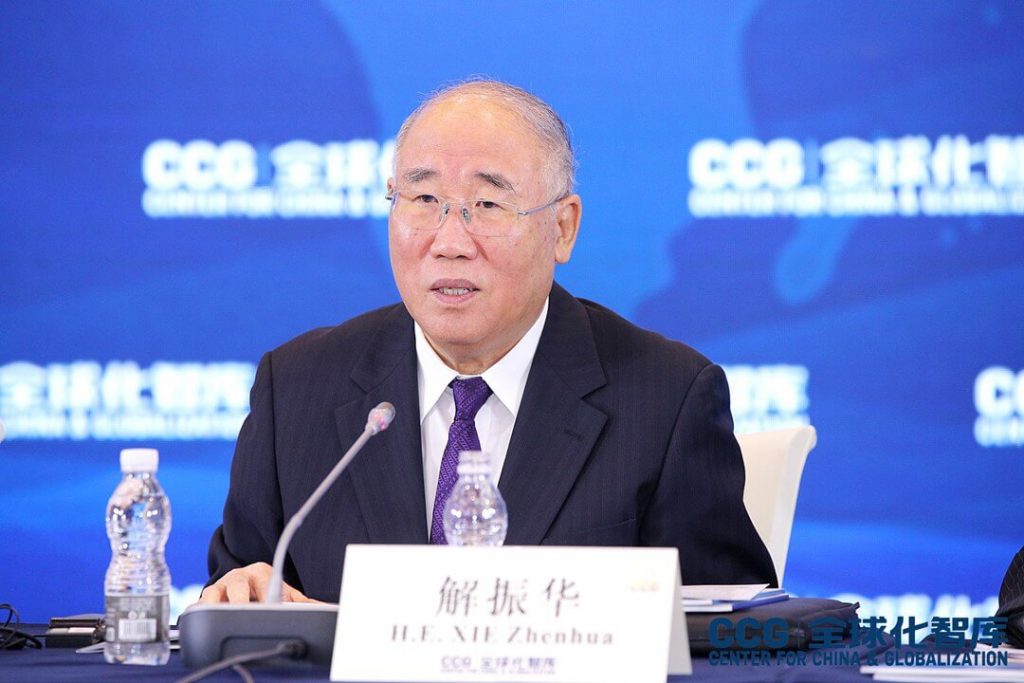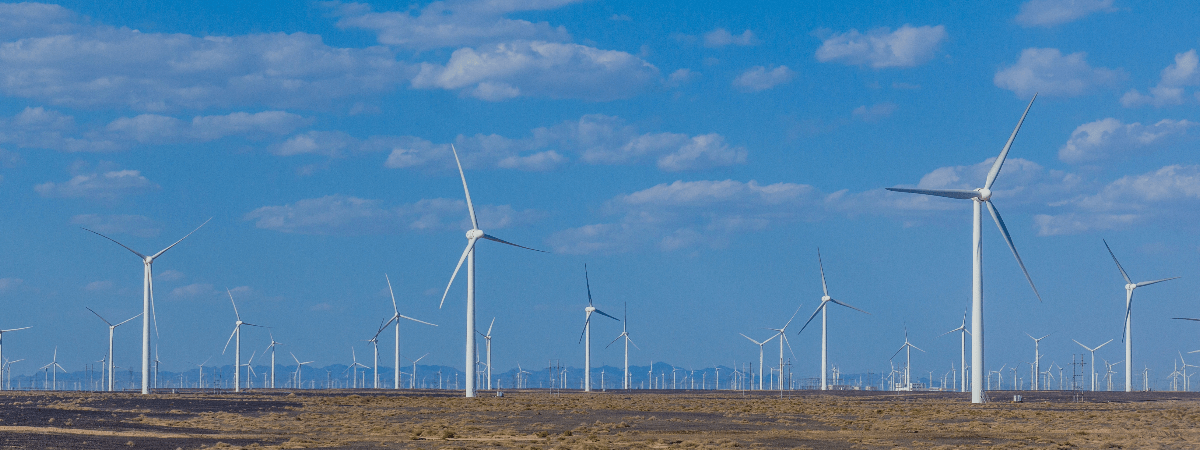China Agrees to ‘Bridge Building’ With U.S., EU at Upcoming Climate Summit
By Wang Liwei, Xia Yining and Wang Xintong


China, the U.S. and Europe have agreed to work together to ensure the success of the upcoming COP28 climate summit, including “bridge-building” efforts at the meeting to resolve some of the differences between the countries engaged in negotiations, China’s top climate negotiator said.
To make COP28 a success, China has also “engaged in intensive dialogues and consultations with the U.S., Europe and other relevant parties,” Xie Zhenhua, China’s special envoy on climate change, told a forum on globalization on Thursday.
Specifically, during U.S. climate envoy John Kerry’s visit to Beijing in July, China and the U.S. agreed to set up a working group to cooperate on energy transition, “low-carbon smart cities,” circular economy and methane emissions control, Xie said.
Discussions have continued since then. Xie said he and Kerry have also held regular talks via video over the past two months, discussing issues such as when to start the group’s work, also telling his U.S. counterpart that he is willing to travel to Washington for more climate talks.
Also in July, the European Commission’s top climate negotiator, Frans Timmermans, traveled to Beijing for a high-level dialogue on environment and climate, during which the two sides agreed to focus their future cooperation on a range of areas such as the circular economy, biodiversity, plastics pollution, national carbon markets and the clean energy transition, Xie said.
The flurry of high-level talks came as the globe is increasingly feeling the pinch of climate change, with China, the U.S. and parts of Europe all hit by historic heat waves in recent months. They also came ahead of the annual U.N. climate conference, known this year as COP28, scheduled to start in Dubai on Nov. 30.
One of the highlights of this year’s climate conference is the first Global Stocktake of the implementation of the Paris Agreement reached by nearly 200 countries at COP21, which aims to keep global heating well below 2 degrees Celsius above pre-industrial levels, and shoot for a target of 1.5 C.
At Thursday’s forum, Xie warned that without aggressive joint action, global temperatures could rise by 3.5 C or more, failing to meet the Paris Agreement’s goals.
The “well below 2 C” target could only be achieved if all of those nearly 200 countries fulfill the climate pledges they have made since signing the Paris Agreement in 2015, Xie noted.
As the world’s biggest greenhouse gas emitter, China has pledged to peak carbon dioxide emissions by 2030 and become carbon neutral by 2060.
Xie said greater use of renewable energy sources, such as solar and wind, has played an important role in helping China reduce its carbon emissions. But he also acknowledged that the country faces technical problems in areas such as large-scale energy storage, carbon capture, utilization and storage (CCUS) and smart grids.
China will also strengthen its cooperation in these areas with the U.S. and Europe, which have extensive experience and good technology in this regard, Xie said.
The promotion of CCUS technology and the realization of large-scale energy storage to reduce emissions is also in line with the global situation, as a complete phase-out of fossil fuels is not realistic, he added.
Xie said he supports the proposal of a global climate adaptation goal at the U.N. climate summit that “reflects a balance between mitigation and adaptation.”
In addition, the climate envoy emphasized the importance for all parties to create a favorable diplomatic environment for international cooperation and build an open economic and trade regime.
Citing related studies, he pointed out that if trade protectionism continues, it will be detrimental to the realization of the Group of 20’s goal of tripling global renewable energy capacity by 2030 compared with the 2020 level.
Read also the original story.
caixinglobal.com is the English-language online news portal of Chinese financial and business news media group Caixin. Global Neighbours is authorized to reprint this article.
Image: Matyas Rehak – stock.adobe.com
